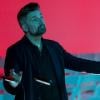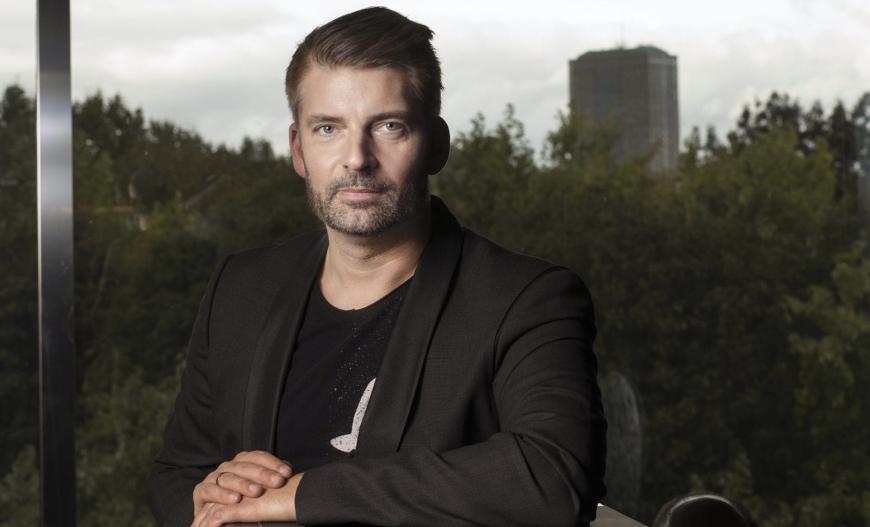
At 51, Matthias Pintscher maintains a rock star-like schedule, and this January is no exception for the composer and conductor. In his final season as music director of the Ensemble intercontemporain (EIC) — the world’s foremost contemporary music group, founded in 1976 by Pierre Boulez — Pintscher takes the Parisian ensemble to Santa Barbara before stepping up to the podium at Walt Disney Concert Hall on Jan. 30 with an intriguing program under the Los Angeles Philharmonic’s Green Umbrella series. (Pintscher also leads the LA Phil Feb. 3–4 with Ray Chen as violin soloist.)
The ensemble that won the 2022 Polar Prize of the Royal Swedish Academy (the equivalent of the Nobel Prize in music) will perform Olga Neuwirth’s score for Hans Karl Breslauer’s 1924 silent film Die Stadt ohne Juden (The city without Jews). Based on the 1922 book by Hugo Bettauer, the work is a satirical/social commentary on the anti-Semitic politics and culture of the 1920s, with Neuwirth’s score an interconnected web of sounds and images that promises to lure audiences into a nearly 100-year-old world that, however unfortunately, still resonates today.
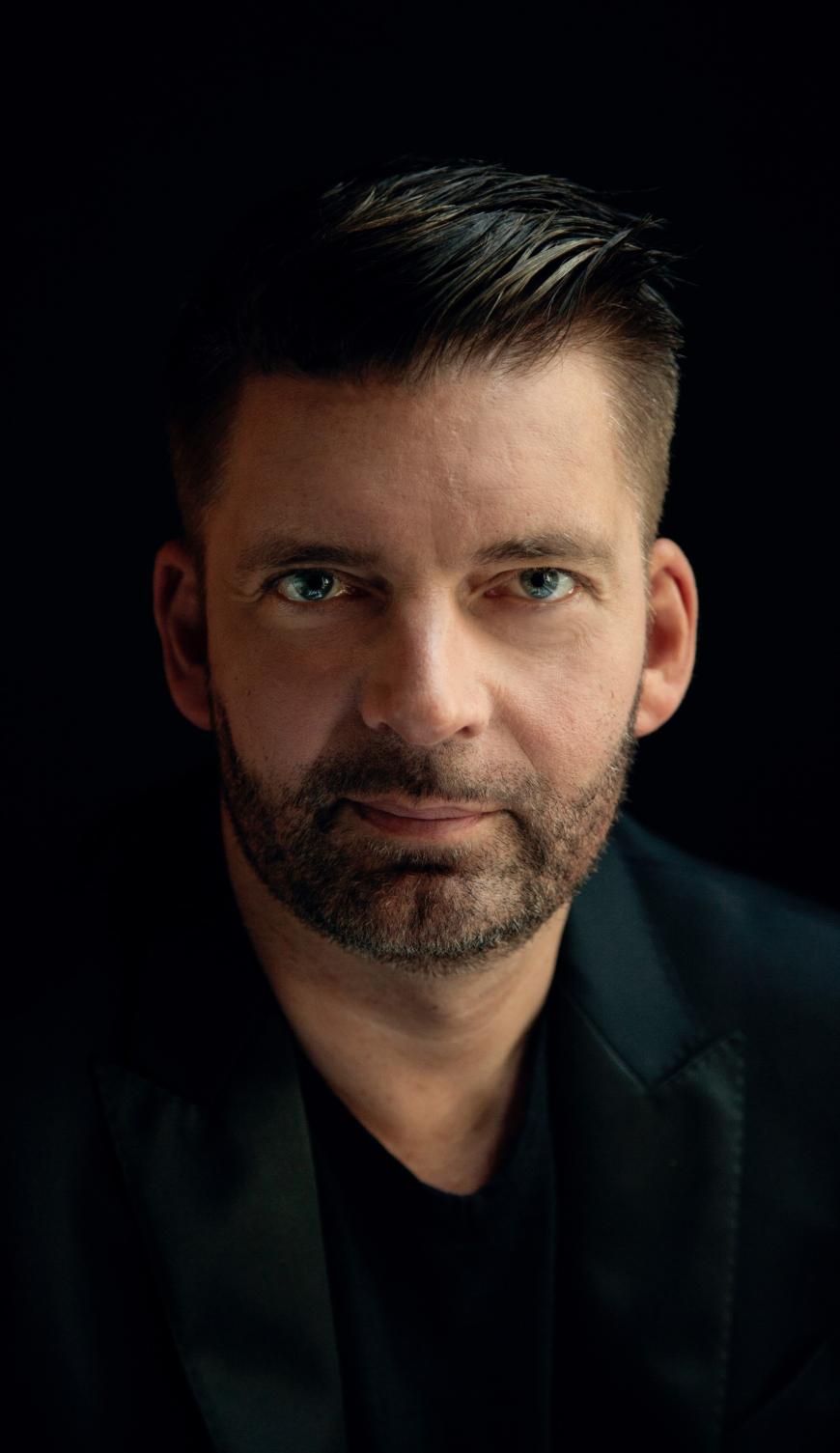
The German-born Pintscher began his musical training in conducting as a teen and then studied with Peter Eötvös in his early 20s and began composing at that time. Having since gained accolades in both fields, Pintscher has had works performed by such orchestras as the Boston Symphony, the Chicago Symphony, The Cleveland Orchestra, and the New York Philharmonic, among others, with The New York Times’ Corinna da Fonseca-Wollheim calling his 2013 piece Bereshit “mesmerizing and sophisticated.”
As a maestro, Pintscher enjoys and maintains relationships with the world’s most distinguished orchestras, including Amsterdam’s Royal Concertgebouw Orchestra, the Bavarian Radio Symphony Orchestra, and the BBC Scottish Symphony, in addition to being creative partner for the Cincinnati Symphony.
This season, Pintscher makes guest conducting debuts with the Vienna Symphony and the Gürzenich Orchestra Cologne, while in North America, he bows with The Philadelphia Orchestra and the Kansas City Symphony, as well as returns to the Detroit Symphony, the Baltimore Symphony, and the New World Symphony.
SF Classical Voice spoke with Pintscher by phone from his home in New York (he also has a place in Paris), where he teaches composition at The Juilliard School. Topics ranged from his farewell season with EIC and Die Stadt ohne Juden to his relationships with Neuwirth and the late Boulez.
This is your final season as music director of the Ensemble intercontemporain, which is an exceedingly difficult name for this Cleveland-born gal to pronounce. That aside, why did you decide to leave?
“Intercontemporain,” it’s a hard one, even for us. For 40 years we’ve had this discussion, and why Boulez choose the name, I don’t know.
But [regarding leaving], I think 10 years is a very good span of time where you can do a lot of things. But pretty much with any artistic leadership, it’s also a good amount of time for an institution to move on and for me to move on. I’m leaving at the peak of our relationship, which has been [one of] trust and love. It’s family, and I’m staying connected with them. Ten years, especially in the contemporary music segment — it’s important to make room for another aesthetic. We’re very, very flexible, and it also requires some sort of [equivalent] mindset. When I started 10 years ago, I had a handful of founding members who in the meantime have retired. In my tenure, six players were hired, and we have 31 [total]. We have found a successor, and it’s Pierre Bleuse, a wonderful aspiring younger French conductor.
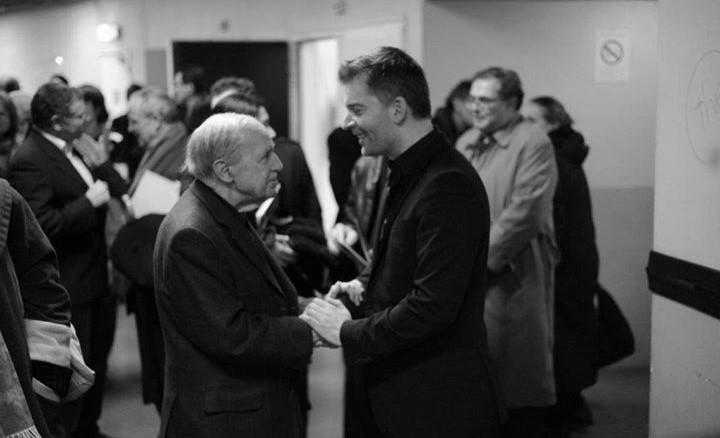
What first drew you to conducting, and can you talk about some of your memories of Boulez?
I started looking into conducting when I was a teenager. I was a piano player — but mostly a fiddle player. I played in a local youth orchestra in a small rural town, and I was the second violin. I was intrigued by the complexity of the “instrument” that is the orchestra and everything it entails — the essential element of this complex instrument.
We had a wonderful conducting teacher who led the orchestra, and he said, “Come and work with me, and stand in front of my orchestra.” I felt mesmerized by it, the physicality of what the orchestra is — shaping sound by your mind. And I appreciate conducting. Pierre [Boulez] was not officially my conducting teacher [as] we met mostly in his home in Baden-Baden.
We spent whole afternoons looking at scores. I was in my mid-20s or late 20s. He was obviously a wonderful mentor, but he [also] shared. He was always interested in what we had to say, what we thought, what we were struggling with, what our aspirations were. It wasn’t, “Me, me, me,” but, “What do you see in it?”
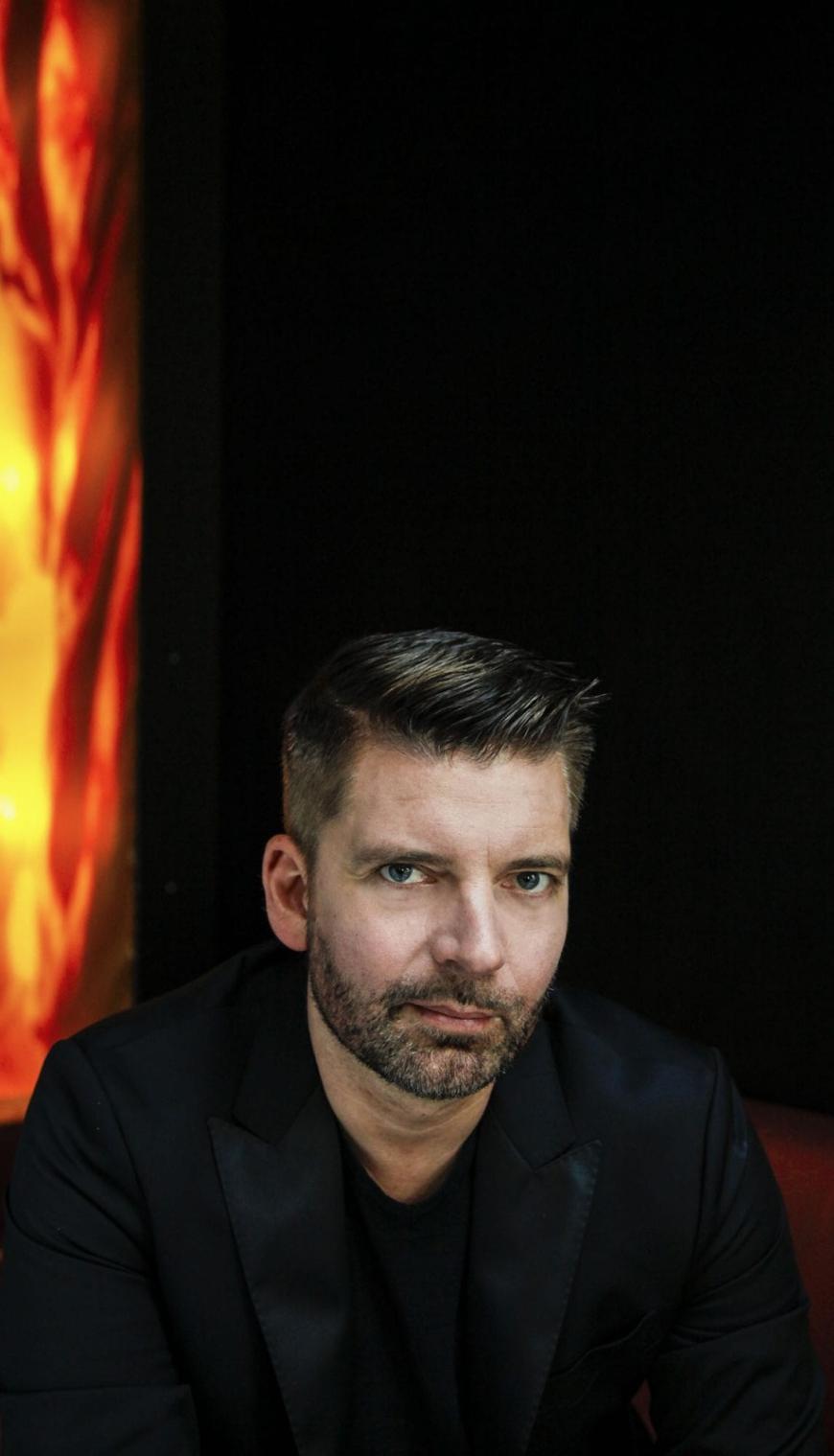
There was such generosity every time I called him. I was doing my first Daphnis and Chloé and said, “Can I see you?” He said to come next Wednesday, and we spent hours and hours together talking. It was wonderful; that generosity is a stellar attribute. He was such a busy man and always made time for the next generation. When he built and started [EIC], it was not to build his own statue, no. He built houses for us to live in, for future generations.
What have been some of the highlights for you as music director of EIC?
It might sound funny, but literally everything that we did! Of course, there are highlights in terms of playing in fantastic venues — the Armory in New York. That was so strong, so powerful. There were also less fancy venues, but magic happens. You meet the audience. There’s energy in the space. We also gave a lot of commissions; we extended the aesthetic repertory. We present the best of all new music being produced worldwide — beyond what my preferences might be or have been.
Everything we did was a highlight, even if it was the classics — the key repertory — all of [György] Ligeti, Boulez, my music, of course. It was wonderful to see that completely open mindset and how [the players] do this. I’m a composer, but I’m speechless to see how they pull it out. It’s so difficult, so complex, and I see them in the bus or airplane staring at their iPads, and then they play it without having practiced it.
It scares me. I think, “How is this going to go?” But they just deliver it with not only ease but joy, and it’s very spontaneous, and that’s so remarkable. That’s why they’re so fantastic, so responsive to the moment and eager to discover. They might not be coming in with the concept [like composers do], but they’re bringing everything to the table to explore, so everything has been almost like a highlight.
We’re investing in future generations of composers — what a joy — and sometimes you fail, sometimes you win. But it’s the investment. It can’t only be about the harvest and what we can produce. No, it’s so much more important to the dialogue. That’s what they do.
And what EIC will be doing on Jan. 30 sounds like it will be equally amazing. Can you talk about Olga Neuwirth’s The City Without Jews?
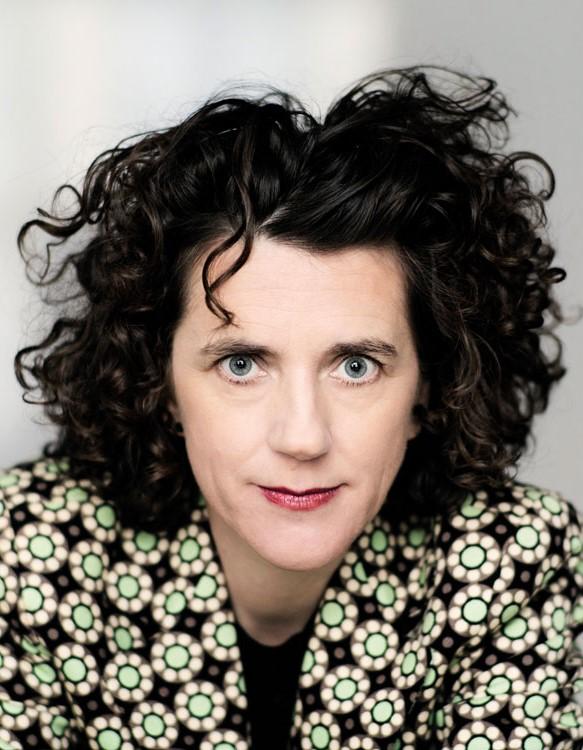
I conducted the premiere [in 2018] and many of Olga’s works — her last opera, her next opera. We’ve featured her work many, many times. She’s also on the subscription program [with the LA Phil Feb. 4], but [City] is a piece that has a fairly small instrumentation, a dozen players. She found this silent movie from the early ’20s that was conceived in Vienna during that time when anti-Semitism was clearly on the rise but hadn’t fully impacted [the country]. But you feel that unsettling, strange, bewildering feeling.
It’s Austrian, so the satire is on the surface, but underneath you feel the abyss. If you listen to a Schubert impromptu, you see the beautifully ornamented surface, but it grows in sadness. That is exactly what this film features. There are very funny moments, but these jokes are floating on the surface of a large abyss underneath. What Olga did was match her idiomatic language with those images, and it creates exactly that — it’s grotesque but funny. So, hold on, because there’s always that layer underneath.
And 10 years later, [the world of the film] is merging directly into the Holocaust. You feel a premonition of all that, especially in the music, what Olga masters so brilliantly. How she comes toward the silence, and the music actually stops, and it’s just images that make it uncomfortable in an artistic way. It’s an unsettling and powerful piece [and] appreciated all over the world. I’m happy to bring it to Disney Hall, even if it’s a small ensemble to give the sound.
Then there’s your long and fruitful relationship with Neuwirth.
She’s [like] my big sister. We’ve known each other for 30 years now. We became such close accomplices and partners in crime, and out of that, working together over and over and over for decades, it emerged into this trustful love and appreciation and what we have for each other. She has become family and is one of my closest collaborators and one who is also meaningful to me in my personal life.
What a great artist she is. She’s very hard on herself, unforgiving and requesting the highest standards, but she starts with herself, and I’ve provided the right circumstances to make her art live and breathe.
In fact, on the Feb. 4 concert at Disney Hall, not only will the LA Phil be performing the Brahms Piano Quartet No. 1 (arranged by Arnold Schoenberg), followed by Ray Chen playing the Mendelssohn Violin Concerto, but the orchestra will also undertake Neuwirth’s 2014 work Masaot/Clocks Without Hands, written for the Vienna Philharmonic.
It is a piece about the Holocaust. Olga received a tape from her Jewish grandfather where he’s talking about that time in the late ’20s in Vienna [and] the rise of anti-Semitism. There are a lot of Klezmer quotations, and [you feel like you’re being] drowned by lava [with a] magma of threats surrounding us. It’s an extremely powerful piece and will pair with the Mendelssohn, which is crystal clear, light.
It’s exactly what I described with Schubert’s music — that you feel deep connections. Then we stay in Vienna with Brahms and Schoenberg. It’s always wonderful to bring a piece by Schoenberg to L.A., and his relatives will be attending — [his grandson] Randol and his family. I like that work, and a lot of people don’t agree with me, but it’s substantial. It features the orchestra so beautifully.
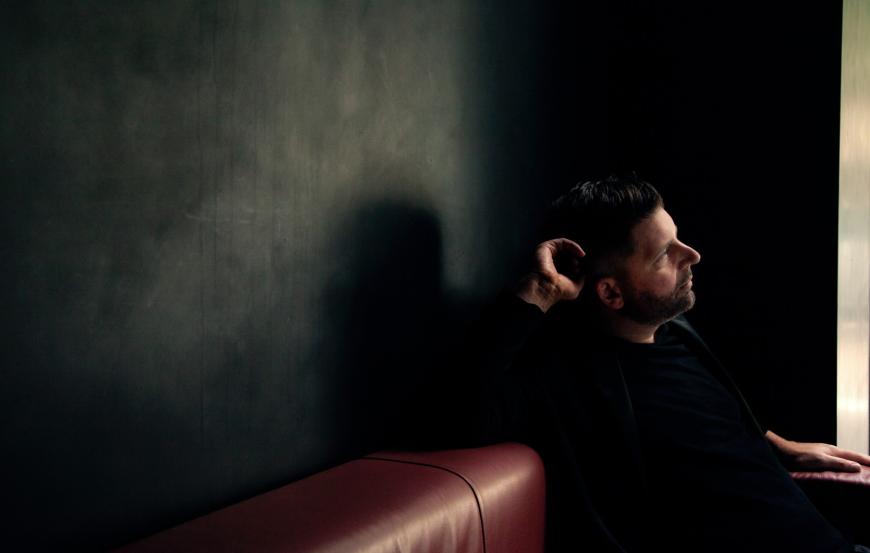
You’ve been teaching at Juilliard for nine years. What advice do you give aspiring composers and/or conductors?
To please keep an open mind, please study, please look even way back into music history. Know about Monteverdi. Also learn about technology because we should all benefit from the complexity of our time and take it as an inspiration and try to figure out the next step.
It’s most important to move, even if you don’t know what direction. But be in transit because moving forward is most important. Dare and allow yourself to recognize something precious right next to you. We need to relearn how to appreciate music, especially composers coming out of COVID. Relearning to listen is a very global thing, not only for young composers working in the field but for everyone.


